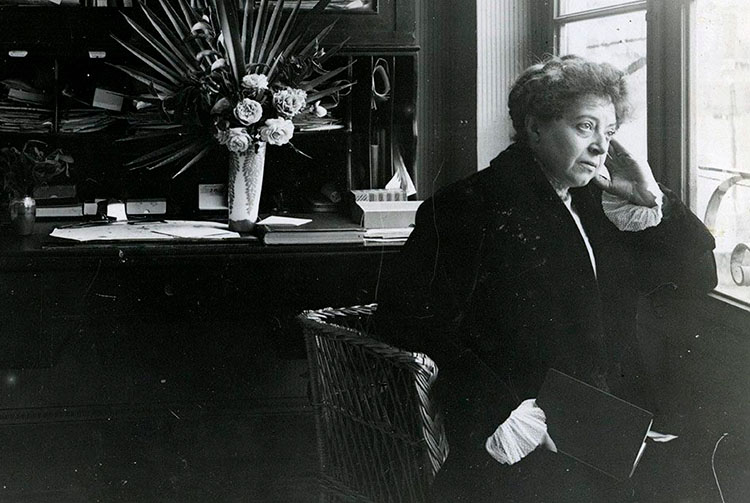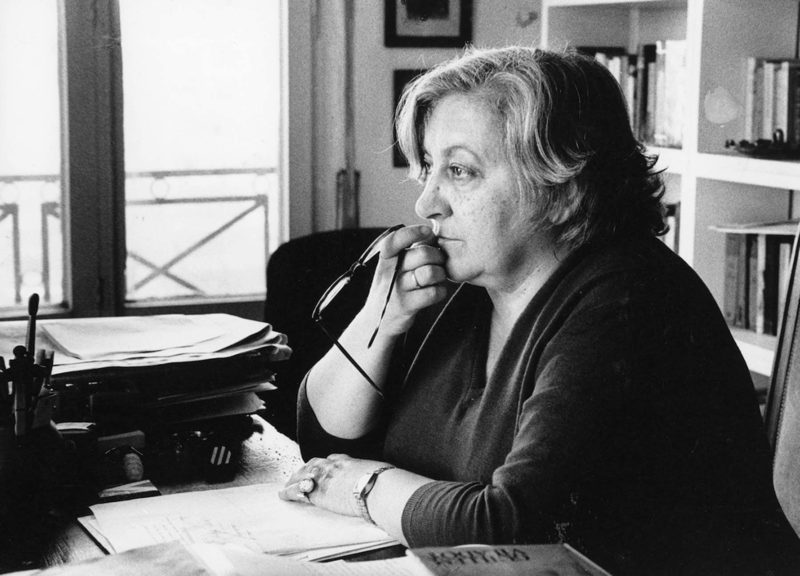

21st-century feminism: the struggle continues
We end the chronological journey that has brought us closer to the history of the vindication of the ‘feminine self’, through five women who have marked the course of contemporary history, written from a feminine perspective. Centuries of history have given rise to small and great victories for the normalisation of a point of view based on pure social conventions that have little to do with human nature. Now, feminism in the 21st century continues to raise its voice for one of the oldest historical demands: equality between women and men.
Mireia Cano, Sales Lead B2C of 11Onze
Looking back, we can see that, despite the fact that history has been written by men, women have played a key role. In all areas and in all struggles. Protagonists in the shadow of human history, where every struggle and every right acquired in favour of the female gender has been debated again and again. A circular history that constantly and independently of the country or the time takes us to the same point: the travelled road has allowed us to advance, to a greater or lesser extent, depending on the society and the subjective prism through which we look at it. A step forward, but not enough. The struggle does not stop. Equality is still a long way off for the younger generations.
Male superiority and #patriarchy
Moral superiority (and nothing else than moral) between sexes, ethnic groups, cultures or social classes is nothing more than evidence of a desire for control that, far from being natural, is born out of social constructions based on power, often linked to money or directly to physical force. Any reasoning or behaviour born from superiority cannot be considered just and, therefore, should not be considered feminist. The perpetuation of the feminist struggle evokes multiple conclusions. We put one on the table: in order to continue to advance, men have to join in.
History has been written by men, the world has been led by men and even religions are highly masculine. Can we talk about progress if we still count every woman who for the first time gains access to a place of power? If laws are needed to achieve parity in the workplace? If women’s bodies, maternal decisions or the way they dress are decided by men all over the world or if machismo violence continues to murder and rape girls, girls and women at home? If all this is what constitutes the current world we live in, changing it must surely be a gender issue. You cannot redefine the role of women without redefining the role of men. And it all comes down to education, which has to move away from patriarchy, the term that defines a male-dominated social organisation.
#NotAllMen, but #AllWomen
Half of the population still lives under the stigma of the weaker sex, under the control of patriarchy and with the certainty that despite not being directly affected by it myself or the women around me, looking at both sides everyone has a story nearby that shows how much work remains to be done. Throughout history, feminism has gone through various stages which, depending on the context of the time, have involved one type of struggle or another, based on conservative, liberal or vindictive ideals. There are many women to whom we can put a face and whose history we can explain. Some of them have achieved great advances for women, while others have simply paved the way with ideas, works or by opening doors that until then had remained closed.
Feminism, understood as the search for equality between men and women, has as many interpretations, currents or meanings as there are people who talk about it. Interpretations vary according to the education received, family tradition or the behaviour that each person has seen at home. It is understandable, therefore, that thoughts such as that feminist women are “exaggerating”, that “there are no inequalities nowadays” or that life has to be lived “as it always was” justifying that traditions, however misogynist they may be, have to be respected instead of changing them to achieve parity. Faced with this reality, it is all the more important to emphasise that feminism must be based on respect, the basis on which to aspire to freedom. Can anyone who lives with their eyes fixed on others be free?
From liberation to sexual normalisation #lovewins
Many societies have accepted that sexual orientation does not have to be a reason for hatred, let alone aggression or legal sentences. Sexual freedom is normalised and some stigmas linked to sexuality are left behind, especially among the younger generations and in Western countries. Destigmatization is born in the awareness of one’s own body, freedom of decision, and respect for other ideologies. Also, the construction of rapidly proliferating partnerships such as polyamory or open relationships, which, beyond the yearning of any generation of young people to discover themselves, try new things and live experiences, also shows and gives hope for a future that is predicted to be respectful and open-minded. The least moral judgements, and freedom and respect above all else.
Unfortunately, once again there is no situation or context free of aggression by people who, because of their sex or sexual orientation, feel superior to those who are different. Sexual orientation is still a justification for aggression, and conservative love relationships with gender roles marked by the male presence are not stopped either. Forced relationships, physical, mental and sexual violence against women, the sexualisation of the female body or the social and individual judgement of women to enjoy sexuality that is full and grounded in their freedom are not stopped either. Freedom, however, which society strives to emphasise is limited, always within social canons, standards and subjected to multiple criticisms in the eyes of the world. Perhaps for this reason, because advancement is never enough or generalised, the feminist struggle constantly shares space with the struggle of other minorities or collectives in search of the freedom that by nature should be granted to them.
The struggle will be shared, or it will not be #MeToo
The reality of movements such as #MeToo corroborate that when a woman raises her voice to make a complaint, thousands appear by her side who have experienced the same thing and, whether out of ignorance, fear, or a feeling of normality in the face of attitudes that should not be normal, have preferred to remain silent for years. And what kind of normality can it be to live in the 21st century, where a few minutes of a man’s sexual satisfaction prevails over a woman’s life? Many are the battles won, the advances and the scenarios where parity is being achieved. There are many men who have been educated and educate from this prism of respect, regardless of sex or sexual orientation, and there are also more and more young people who grow up without the stigma of the patriarchal base and young women who identify and denounce any situation that goes against their freedom.
Of all the positive things we could list and be proud of, mainly because of all those who have dedicated their lives to the cause and even lost them, there is one thing that stands out above all: the struggle for life. When the moral superiority that sentences a life in exchange for ideals all over the world disappears, feminism will be able to take the final step and start talking about freedom.
11Onze is the community fintech of Catalonia. Open an account by downloading the super app El Canut for Android or iOS and join the revolution!
Leave a Reply
You must be logged in to post a comment.





Gràcies!
💛
Després de llegir i respondre el text te n’adones d’una choesió enfocada cap a la vida magnífica. Amb una adeqüació realment pròxima als/les lectors/es amb la finalitat d’informar de que la lluita per la llibertat igualitaria tant per homens com per dones no s’atura. Amb una coherència i capacitat de sintesi molt bé👌 Merci. Seguim!
Exacte Jordi, la lluita no s’atura perquè encara ens queda molt camí per recórrer. Gràcies per la teva aportació.
Felicitats Mireia per aquesta darrera aportació a la Història de la Dona Contemporània que varem iniciar ara fa unes setmanes. Les teves reflexions demostren que encara ens queda un llarg camí a recórrer com a societat. Certament, és necessari fer el pas definitiu per a començar a parlar de llibertat!